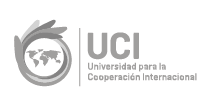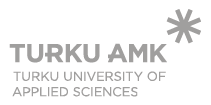Breastfeeding is one of the most important experiences at the beginning of a baby’s life, providing not only nutrition but also emotional, psychological, and immune system benefits for both the baby and the mother. Despite its many advantages, many mothers face challenges in achieving successful breastfeeding. Below are some practical, evidence-based tips to help ensure a successful breastfeeding experience.
1. Start breastfeeding within the first hour of birth
Starting breastfeeding early is crucial for success. According to the World Health Organization (WHO), the benefits of exclusive breastfeeding during the first six months are clear, and beginning breastfeeding within the first hour of life increases the chances of success (World Health Organization, 2009). This early start helps stimulate milk production and strengthens the emotional bond between mother and baby.
Research shows that mothers who breastfed within the first hour had higher long-term breastfeeding success rates compared to those who didn’t. This practice also aids in placenta expulsion and reduces the risk of postpartum bleeding, helping the mother recover more quickly (Mary et al., 2022).
2. Ensure proper positioning and latch
Proper positioning is key for the baby to latch correctly and for the mother to avoid discomfort. According to Pope (2016), an improper latch or positioning during breastfeeding can lead to issues such as nipple pain, cracking, and reduced milk supply. The baby should position their mouth to cover the entire areola, not just the nipple, for an effective latch.
Additionally, Geddes et al. (2021) recommend that the mother be comfortable, sit in a quiet space with support, and keep her back straight to reduce tension and ensure effective breastfeeding. Taking the time to find a comfortable and secure position can make breastfeeding more enjoyable for both the mother and the baby.
3. Breastfeed on demand
Breastfeeding on demand—feeding the baby whenever they are hungry—is essential for milk production. According to Horta et al. (2015), breastfeeding on demand is associated with greater milk supply, as each time the baby suckles, hormonal signals are sent to stimulate the production of prolactin and oxytocin, key hormones for breastfeeding.
Breastfeeding on demand also ensures the baby gets both the initial milk, which is rich in water, and the later milk, which is richer in fat and essential for growth and development (Horta et al., 2015). There are no set schedules for breastfeeding, and it’s important for mothers to respond to their baby’s cues instead of sticking to a rigid schedule.
4. Avoid unnecessary use of pacifiers and bottles
Using pacifiers and bottles in the first few weeks can interfere with establishing a breastfeeding routine, as it may confuse the baby. Studies show that babies fed with bottles early on are more likely to stop breastfeeding prematurely (Yilmaz et al., 2014). It’s recommended to avoid these products until breastfeeding is well established.
5. Seeking support from healthcare professionals and support groups
Support from healthcare professionals, such as lactation consultants or specialized nurses, is vital for addressing any challenges during breastfeeding. Early guidance and expert help can prevent complications such as nipple pain, milk supply issues, or improper latch.
Joining breastfeeding support groups can also be incredibly helpful. These groups provide a space for mothers to share experiences, ask questions, and receive emotional support. Ying et al. (2025) found that mothers who participate in support groups have significantly higher rates of exclusive breastfeeding at six months.
6. Stay hydrated and well-nourished
Hydration and proper nutrition are essential for successful breastfeeding. Increased milk production requires considerable metabolic effort from the mother’s body, so staying well-nourished and drinking enough water is key. Mothers should avoid strict diets or stress about losing weight quickly, as this can negatively affect milk production. The priority should be the mother’s health and well-being, which in turn benefits the baby.
7. Be patient and persistent
Breastfeeding can be a learning process for both mother and baby. In some cases, the first few days or weeks may be challenging, but perseverance is key. The American Academy of Pediatrics emphasizes that initial problems like nipple pain or difficulty with latch usually improve over time with proper support. Being patient, seeking help when needed, and understanding that each breastfeeding journey is unique can make a big difference in achieving breastfeeding success.
A successful breastfeeding experience depends not only on biological factors but also on the environment and emotional support surrounding both the mother and the baby. The combination of informed practices, such as starting early, ensuring a proper latch, and seeking support, along with patience and persistence, is essential for overcoming any challenges. With the right support, breastfeeding can be a rewarding experience for both mother and baby, with lifelong benefits.
References:
Ying Wei Fan, Heidi Sze Lok Fan, Jeffery Sheung Yu Shing, Hoi Lam Ip, Daniel Yee Tak Fong, Kris Yuet Wan Lok, Impact of baby-friendly hospital initiatives on breastfeeding outcomes: Systematic review and meta-analysis. Women and Birth, Volume 38, Issue 2, 2025, https://doi.org/10.1016/j.wombi.2025.101881.
Horta BL, Loret de Mola C, Victora CG. Breastfeeding and intelligence: a systematic review and meta-analysis. Acta Paediatr. 2015 Dec;104(467):14-9. doi: 10.1111/apa.13139. PMID: 26211556.
Pope CJ, Mazmanian D. Breastfeeding and Postpartum Depression: An Overview and Methodological Recommendations for Future Research. Depress Res Treat. 2016;2016:4765310. doi: 10.1155/2016/4765310. Epub 2016 Apr 11. PMID: 27148457; PMCID: PMC4842365.
Mary JJF, Sindhuri R, Kumaran AA, Dongre AR. Early initiation of breastfeeding and factors associated with its delay among mothers at discharge from a single hospital. Clin Exp Pediatr. 2022 Apr;65(4):201-208. doi: 10.3345/cep.2021.00129. Epub 2021 Oct 18. PMID: 34665960; PMCID: PMC8990951.
Geddes DT, Gridneva Z, Perrella SL, Mitoulas LR, Kent JC, Stinson LF, Lai CT, Sakalidis V, Twigger AJ, Hartmann PE. 25 Years of Research in Human Lactation: From Discovery to Translation. Nutrients. 2021 Aug 31;13(9):3071. doi: 10.3390/nu13093071. PMID: 34578947; PMCID: PMC8465002.
World Health Organization (2009). Infant and Young Child Feeding: Model Chapter for Textbooks for Medical Students and Allied Health Professionals. WHO Press.
Yilmaz G, Caylan N, Karacan CD, Bodur İ, Gokcay G. Effect of cup feeding and bottle feeding on breastfeeding in late preterm infants: a randomized controlled study. J Hum Lact. 2014 May;30(2):174-9. doi: 10.1177/0890334413517940. Epub 2014 Jan 17. PMID: 24442532.














